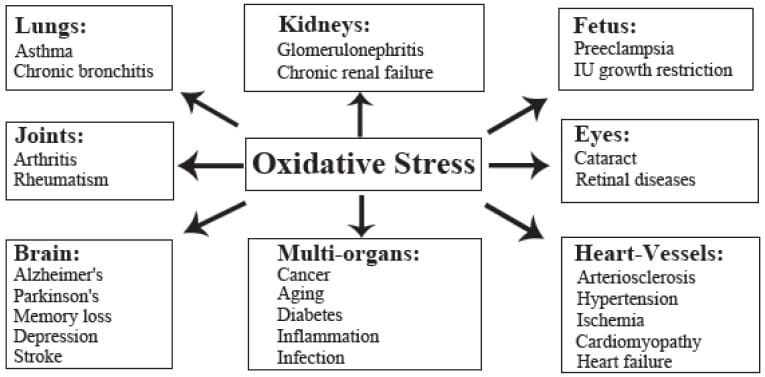The importance of anti-oxidants

A brief history of free radicals and why anti-oxidants are important as a healthy protective shield for our bodies.
History
Antoine Lavoisier, a French chemist, is the one we credit with identifying and naming oxygen in the late 18th century.
Moses Gomberg coined the term "free radical" in 1900 to describe chemical species with unpaired electrons.
The concept of free radicals causing harm to biological systems became popular in the mid-20th century.
The discovery of antioxidant enzymes, such as superoxide dismutase (SOD) and catalase, highlighted the body's internal defense mechanisms against oxidative stress.
Scientists discovered the concept of oxygen-free radicals roughly fifty years ago. However, only within the last two decades has there been an explosive discovery of their roles in the development of diseases, and also of the health protective effects of antioxidants.
Free radicals
The unpaired electrons fire around like high-speed bullets, firing in every direction, wrecking your cells.
Free radicals can be both beneficial and harmful for the body.
These radicals are natural byproducts of the millions of chemical reactions in the body.
A few reactions can be helpful. As an example, the immune system employs free radicals to destroy bacteria and defend the body.
There need to be checks and balances. When there are too many free radicals within our body, it can cause devastating effects. The most harmful outcomes are cellar damage and aging. Free radicals can damage DNA, mitochondria and essential protein involved in important enzymatic reactions.
We not only have to deal with free radicals produced from within our body but also from external sources like cigarette smoke, pollution, radiation and medications.
When the amount of free radicals exceeds the body's ability to handle, it leads to oxidative stress. Oxidative stress plays a major role in the development of chronic diseases.
Oxidative Stress
- Prevent oxidative damage and the accumulation of too many free radicals.
We have a few options to overcome and neutralize oxidative stress within our bodies. Internal antioxidants our bodies make and consuming many anti-oxidants through our diet.
- The second is to make sure we give our body a fighting chance to heal from the damage.
We have repair mechanisms and our cells when functioning within the confines of a healthy body can signal cellular pathways which respond and adapt to oxidative stress.
Chronic Diseases from oxidative stress
Depending on the organ and cells, the extent of damage varies. Researchers have linked oxidative stress to the most common chronic disease responsible for worldwide death and comorbidities.
One of the many pathways related to cardiovascular disease traces back to free radicals. They can damage small density LDL particles, which causes atherosclerosis. We know arteriosclerosis is a precursor to increased risk of heart attacks.
Neurons are one of the most metabolically active cells, making them exceptionally susceptible to oxidative stress. Implications are neurocognitive disorders like Alzheimer's and Parkinsons.
DNA damage from free radicals can turn of specific genes which prevent cancer
If we do not keep the chronic inflammatory process, unleashed by the overproduction of free radicals, in check, it can lead to diabetes, arthritis, and some autoimmune conditions.

How do we efficiently mitigate free radicals and make sure the body has enough antioxidants?
One of the many wonders of our body is its outstanding ability to counteract these the profoundly damaging effects of these harmful electrons.
Your body also produces small amounts of intrinsic antioxidants. There are several actions needed to promote the formation of these antioxidants. Exercise improves the formation of antioxidants made by the body.
Improved blood flow from exercise delivers increased oxygen to the tissue and oxygen provides as an end element for removal of free radicals
Mitochondria is a highly metabolic organelle. It machinery if optimized by exercise, making it more efficient and this producing fewer free radicals.
Plant-Based Antioxidant Sources:
- Berries, vegetables, nuts, and seeds are rich in antioxidants like vitamins C and E, carotenoids, and polyphenols.
- Herbs and Spices like Turmeric, Cinnamon, Ginger and Cloves.
- Avocado is rich in monounsaturated fats and various antioxidants
- Dark Chocolate with high-quality, high cocoa content
Summary
Our cells need protecting from the big bad free radicals and the resulting oxidative stress which damages our cells. We have a super hero defense within ourselves. Can we create powerful heroes by reducing stress, inflammation, exercising, and consuming antioxidant-rich foods? If you want to slow down the aging process and live a longer life by preserving the important cells needed for critical organ function, then you know what you have to do.